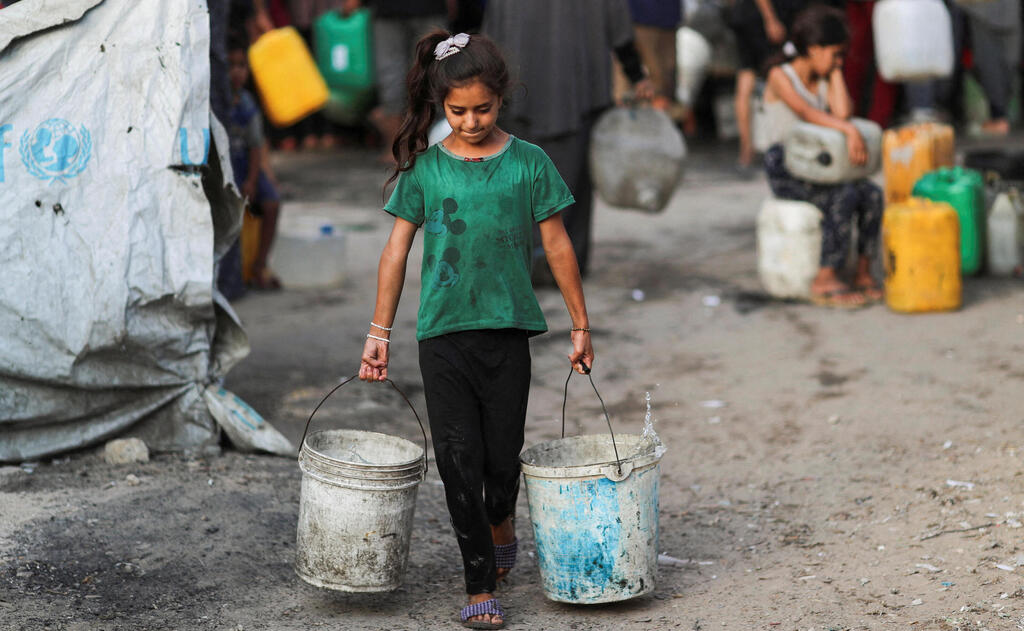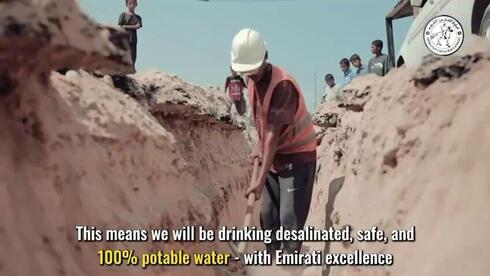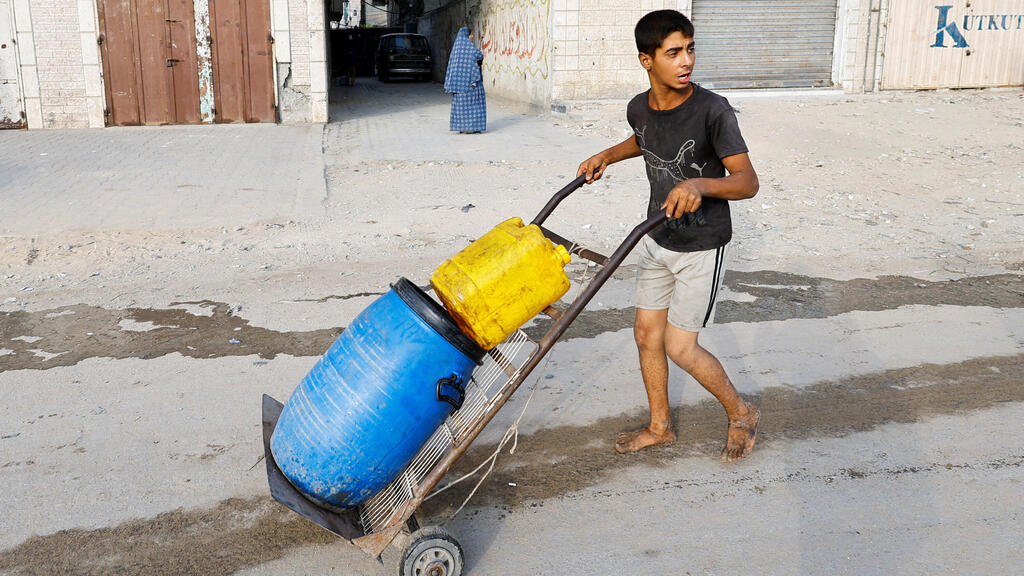A video released in the United Arab Emirates on Wednesday shows the construction of a new water pipeline running from Egypt to the Al-Mawasi area in southern Gaza, as part of broader efforts to adapt humanitarian infrastructure in southern Gaza.
The IDF said last month that it approved a UAE-backed initiative to construct a water pipeline from a desalination plant in Egypt to the Al-Mawasi area along Gaza’s coastline, in accordance with instructions from the political echelon.
Emirati project to build humanitarian infrastructure in southern Gaza
Construction is expected to take several weeks, and the pipeline will operate independently of Israel’s water lines. The pipeline is expected to provide around 15 liters of water per person per day, serving over 600,000 people.
Emirati officials began bringing equipment for the project into Gaza from Egypt through the Kerem Shalom crossing, under strict inspection and security oversight.
Claims of hunger in Gaza have been accompanied by reports of a worsening water crisis. Nearly two million people are currently living in tents and makeshift camps without sewage or clean water infrastructure, according to Reuters. Residents say they are forced to walk long distances each day to obtain small amounts of water for drinking or washing.
Reuters noted that water supply from Israel was cut off at the beginning of the war, partially restored later, but according to local sources, the damaged pipes remain inoperative. Meanwhile, the Coordinator of Government Activities in the Territories (COGAT)—the Defense Ministry body administering civilian affairs in the West Bank and Gaza—clarified that the IDF is operating two water pipelines pumping millions of liters daily.
2 View gallery


A girl carries buckets filled with water back to her family
(Photo: Mahmoud Issa/Reuters)
According to UN data, the minimum emergency water requirement is 15 liters per person per day, while the current average in Gaza is just 3 to 5 liters. The NGO Oxfam warned of a nearly 150% increase in waterborne diseases, such as diarrhea and hepatitis.
“People are being forced to choose whether to use water for drinking or for basic hygiene,” said Danish Malik, a representative of the Norwegian Refugee Council, describing how many children are sent daily to carry water containers in place of their parents.







